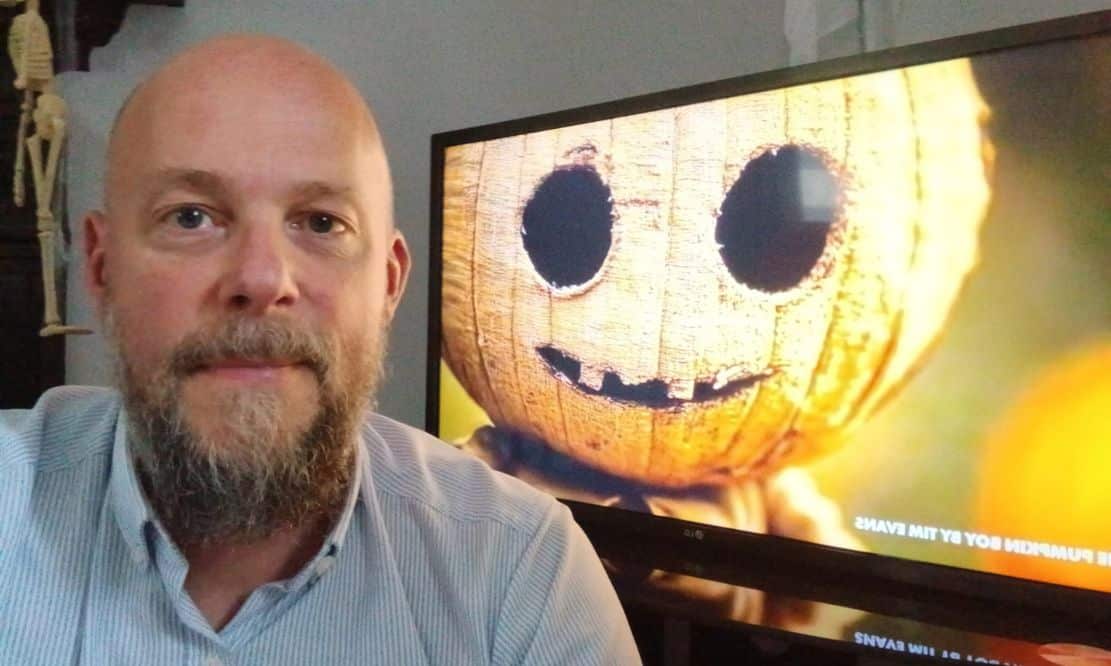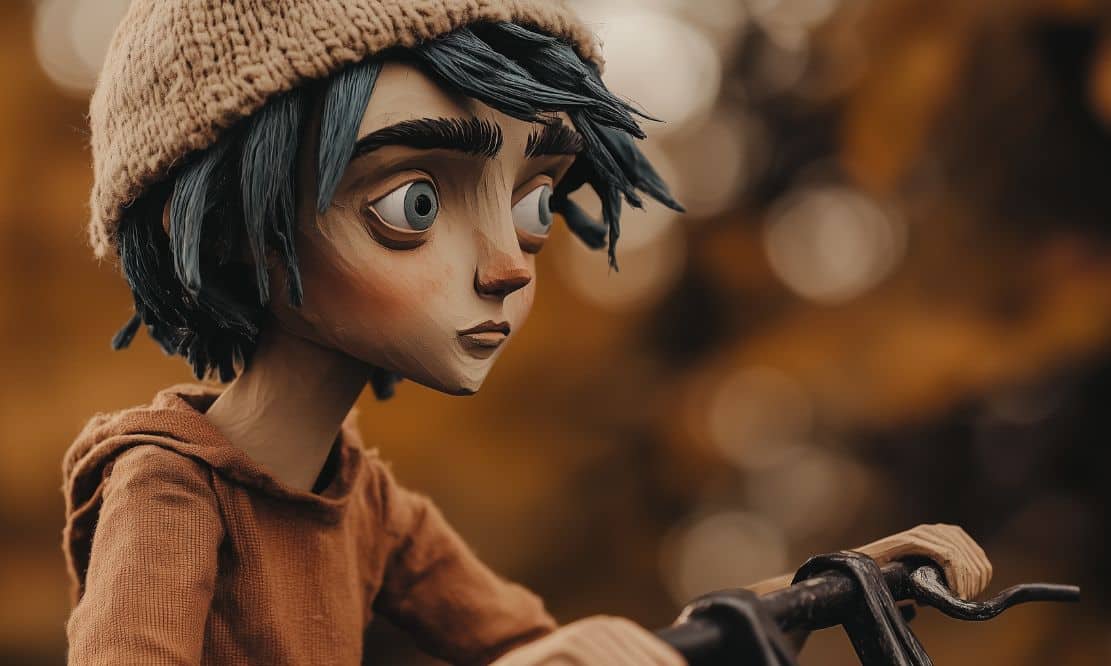
A Co. Armagh animator has made it to the final of an AI horror film competition with his spooky short, ‘The Pumpkin Boy’.
Timothy Evans (51), from Keady, received a very positive response from Hollywood experts on his film, which came 7th out of 500 films at the second annual Curious Refuge AI Horror Film Competition.
‘The Pumpkin Boy’ tells the story of the film’s namesake, who appears in the town of Willow Creek, every Halloween.
While the adults in town think the Pumpkin Boy is merely just a child dressed up, the town’s children are more sceptical, and rumours abound of the Pumpkin Boy’s desire to take a child away, never to be seen again.
Young Tommy didn’t listen to the warning tales, instead falling for a trick package filled with vintage sweets. It was then Tommy encountered the Pumpkin Boy, vanishing into the night.
Tim says the film took around 30 to 40 hours to make using various software after he decided to ‘give it a go’ when playing around with AI generation tools.

A keen animation enthusiast, influenced by the likes of Henry Selick (Coraline, Nightmare Before Christmas), Tim Burton and Ray Harryhausen (Clash of the Titans and Jason and The Argonauts), Tim studied the subject at university, before going on to work at Aardman Animations, the company behind Wallace and Gromit, as a runner.
He said: “Animation has always been something I’ve been interested in and with the rise of AI technology, It’s opening up new creative possibilities where previously I would’ve needed a whole team and a lot more time.
“I’ve always been a designer and that was the route I took at university but then I studied Media Production at Plymouth Art College and animation was one of the modules I decided to specialise in.
“When I moved to Northern Ireland I moved back to the graphic design side of things rather than animation and I suppose it’s one of the things that I wish I’d concentrated on.
“Animation’s always been my hobby really, rather than anything professional, but hopefully that will change.”
While many will have the impression that AI design work does everything for you, Tim says it can be a very time-consuming process to put a film together.
“It all starts with a story,” he explained. “You turn the story into a script and the script into a shot list and the shot list needs prompts for text-to-image AI generations.
“For one shot you may need a few prompts and from these prompts, you get a series of still images which you sometimes have to redesign using other software. You keep training the AI machine to get closer to the image you want and then you can turn it into a short animated sequence.

“So if you just want say, a scene of trees moving in the wind, first you have to get the right shot of the trees and then you transfer the image into a video generation AI software.
“Then you have to give the tech direction as to what you want done with that AI image.
“You would give the tech a prompt to say, pan less slowly and make the trees move in the breeze, and it’ll take ten minutes to generate a ten-second video clip. Then you have to keep regenerating until you’ve got the shots you want.
“Then you put all the shots together in a video-editing software and add the sound on top of it.”
Tim also used AI to generate the narration of the film.
He added: “The whole process is quite a timely process to get it right. It takes a lot of time regenerating and regenerating to get the right images that you want.
“Unfortunately, we’re not at the state where you can tell the AI to make a short animated horror film and it does everything for you. It’s more of a tool at the moment.”
This week, the top ten winners in the competition were announced via live stream, with a panel of six industry professional judges making the decision.

Tim’s film was one of the last to be shown on the night and he admits he was “zero per cent” expecting his to be among the top performers.
“They showed the whole film and then the six judges gave it a really positive critique actually, so it was a real surprise.
“To me, it was a big deal although it was just a little competition and there was a bit of prize money. Unfortunately, I didn’t win any but I came seventh in the end out of 500 so I don’t think that’s too bad.”
Going forward, Tim hopes he can develop his AI skills and produce something on an even bigger scale.
“The world’s my oyster at the moment,” he said. “It’s a case at the moment I think of just keeping going with the work and churning out the projects. As my skill level increases, I’ll keep entering the competitions and see where I get.
“It’s my goal to release a short or feature film in the future and I’m excited at the prospect of working on some animation projects and possibly collaborating with other artists and studios.”



